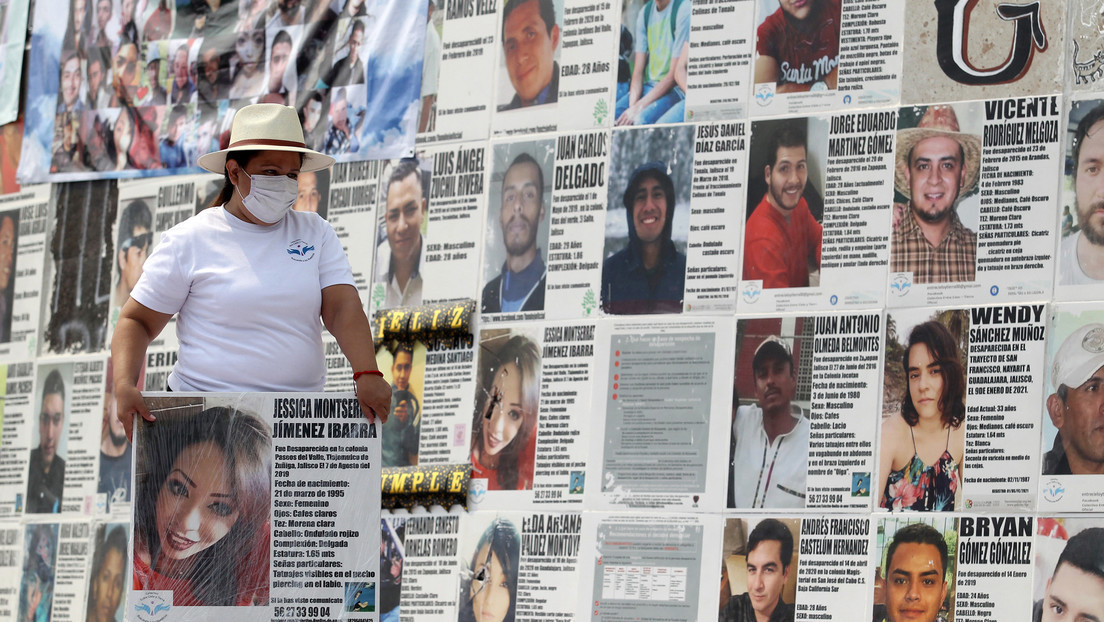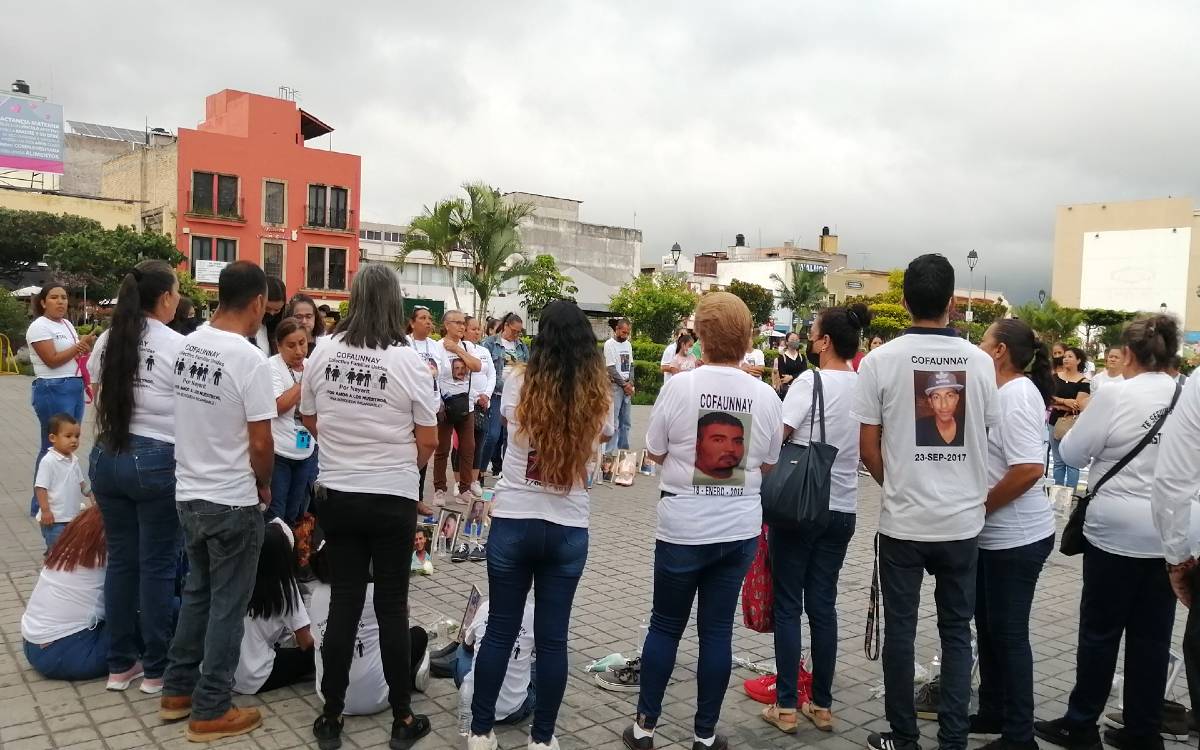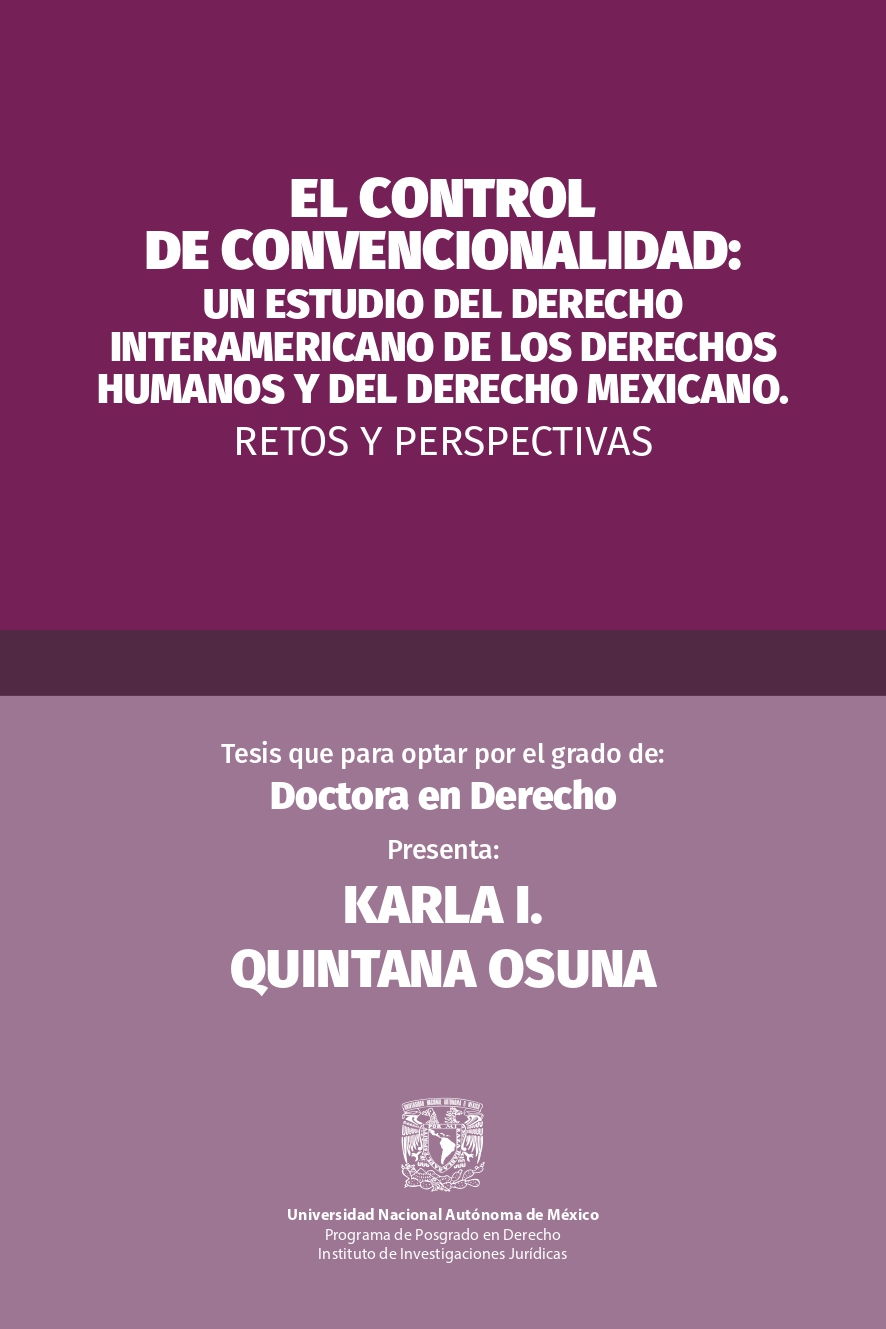Article published on May 1, 2020 by Grupo REFORMA, see original article.
Karla Quintana, from Mazatlán, holds a doctorate in Law and a degree in Hispanic Language and Literature. She paused at the exact spot where Debanhi Escobar was early on April 9, which was captured in the iconic photograph taken by the taxi driver who was transporting her. The spot was well-lit, facing the road directly.
Quintana's initial reasoning, now the National Commissioner for Missing Persons, was that Debanhi was looking for a safe zone. She went to the illuminated spot, she says, like any woman would do at night in search of protection.
Karla Quintana went to the stretch of highway in Escobedo, Nuevo León, as part of her work: the search for a missing young woman. She was with Debanhi's father, Mario Escobar, when they received a call from personnel from the Nuevo León State Attorney General's Office that there had been a discovery in that area. However, despite being the highest federal authority in the search for missing persons, Karla Quintana was not allowed to enter the motel where Debanhi's body was found.
She was blocked from entering and from any possibility of inspection.
The case of Debanhi, unfortunately, exemplifies the lack of coordination, which, it must be said, was pointed out by the Committee Against Disappearances just a few days ago. This is not a theoretical discussion; it has fatal effects, as we can see in Debanhi's case: the failure to share information. Her father has publicly stated that he was not given access to the file, despite the fact that he was the one providing information. But even if he hadn't contributed, he has the right, as Debanhi's family member, to have access to the file. He did not have access until the day I arrived, on the 13th.
The state search commission had not had access to the file until a day before, according to the information we have. So how can you search in a coordinated manner if you don't have access to call logs, geolocations, the interviews that the Prosecutor's Office had already conducted, the videos they were reviewing, what Mario, Debanhi's father, was mainly obtaining?" laments the federal commissioner.
“What happens? Well, there are precious hours, minutes, and seconds lost in finding people alive. We must remember that the fundamental principle is to search for them alive, but even if the person is deceased, the quicker they are found, the more information we will have about what happened. So, not sharing information—not only in Debanhi's case—is something that is constantly repeated in the country, whether in the search for women, children, men, migrants, or all missing persons; it has fatal consequences.”
"In the case of Debanhi, when did the National Search Commission arrive?"
We arrived on Thursday, the day of the discovery. We got there in the morning. We had a meeting that afternoon with the state authorities. A group from the National Search Commission went to the area where all the volunteers and authorities gathered to begin the search every day. I spoke personally with Debanhi's parents, and we joined a search that they had already planned for that day, near the location.
There, Debanhi's father and mother were requesting that the National Search Commission join the search for Debanhi. It’s important to remember that there is a national system and we have state commissions across the country, some stronger than others, and it’s essential to recognize that it is the obligation of each federal entity to strengthen these commissions.
"Mr. Mario requests that we be part of the search; we joined at that very moment. In the afternoon, staff from the National Search Commission accompanied the parents to the Prosecutor's Office to review files and videos, while another part of the commission, led by me, was in a meeting with the Government of Nuevo León.
Once this meeting was concluding, I was informed that Mr. Mario and Mrs. Dolores had arrived at the Prosecutor's Office to inform them that they had to accompany the prosecutor's staff to a location because there had been a discovery.
"The information that Debanhi's own father and mother have stated, and which is corroborated by the personnel from the National Search Commission who were with them, is that they were not informed where they were going, nor if there was a discovery of someone alive or deceased. The person from the National Search Commission was sharing their location with me at that moment so I could try to get there with the team from the Undersecretary of Human Rights, which consisted of three officials, to the site; and we obviously arrived at a place very close to where she was last seen.
Were you at the place where Debanhi was last seen?
We were at the motel, but we did not have access to the place of the discovery; we were not allowed to enter.
Who did not allow you to enter?
The state prosecutor's office did not allow either the National Search Commission or the family to enter; there was a yellow tape, the first press cordon. We were in a second cordon, in the motel's courtyard, but we were not where the recovery work of Debanhi's body was taking place.
At that moment, neither Debanhi's family nor the National Search Commission had access to the cistern where she was said to have been found. We also did not have access to see the body. It is a right of the families; we requested on behalf of the families that once it was extracted, they be shown the body, as it was their request, and they were not allowed.
The body was packaged, and they were shown photos of the extracted body, but not the body directly. Right there at the motel, the photos were shown to them; I was present, as was the local search commissioner and the local victims commissioner; we were there supporting them.
You are saying that a federal body, the most important one involved in the search for the disappeared in the country, was not allowed...
That's right. We were not allowed to be there. This is something that often happens with the prosecutors' offices, and it's something we need to discuss as a Mexican state, as a country: why are these types of findings compartmentalized? The excuse they give is that it's an investigation and there may be contamination.
We are not only a federal agency; we are not just a search entity. We also have specialized forensic personnel for these types of situations. It goes without saying that the National Search Commission had a physical anthropologist on the ground at that moment, who was present at the time of the events, and even then, at the motel, access was not granted to the personnel of the Search Commission.
The disappearance of Debanhi is not an isolated case in Nuevo León, just as the disappearances happening in the State of Mexico and anywhere else in the country are not isolated incidents. There is a specific regional context, and if we do not learn to investigate, search, and identify in a contextual, global, and comprehensive manner, we will not be able to respond to these parallel crises that have been acknowledged by this government and also pointed out by the international community.
Karla Quintana states that social outrage is growing in response to these inefficiencies and institutional conflicts. She also points to the stigmatization of victims.
"There is a stigmatization of missing persons in general and of women in particular. What we hear not only from officials but from many people is: ‘they were involved in something,’ ‘there's a reason things happen.’ Yes, there is a stigmatization and victimization of missing persons that strengthens impunity. The case of Debanhi shows an outrage that should be present in all other cases; it is not a different case, nor is the case in Nuevo León different from what happens in other parts of the country. It is a responsibility of all missing persons, and this is not a poetic or rhetorical issue; the missing belong to all of us."
Mexico has 99,490 people reported as missing. One in four of them are women.
"More than 24,600 women reported as missing, the majority of whom are adolescents between the ages of 14 and 19. It should be noted that, in general, youth is disappearing in the country; men between the ages of 20 and 30 are the most affected group in terms of disappearance, while women between the ages of 14 and 25, primarily between 14 and 18 years old, are particularly affected," Quintana states.
"Every violent death of a woman must be judged with a gender perspective, and one of the hypotheses must be feminicide; every disappearance of a woman must be investigated as if the reason for the disappearance is being a woman.
The National Human Identification Center was created; what does this mean?
It's a very important step. Its function will be to identify unidentified bodies that have already gone through the prosecutor's offices. It should be noted that the ones who mainly identify are the prosecutor's offices; when they are not identified, they are almost always sent to a mass grave.
We are going to go for the bodies that are in mass graves. We have at least 52,000. If we have 99,000 reported as missing, and 52,000 unidentified bodies, there are strong possibilities that several of the people we are looking for are there.
What is the difference between what they have been working on with a lack of resources—it's worth mentioning that the fiscalías also lack resources? We are going to implement a massive approach; that doesn't exist in any country directed at the search for missing persons. We are going to recover the bodies, we are going to retake samples, and we are going to collect samples from relatives across the country, by family groups.
Because what happens today is that the mother provides the genetic sample in Tamaulipas, the father in Nuevo León, and the son somewhere else; so the samples get lost or aren't necessarily shared. We've had cases of bodies that have been in a mass grave for 10 years when the genetic information has been available for the last 10 years, and a simple cross-check would provide that answer. The Center will be able to request forensic information from the fiscalías, and what has been approved states that there will be collaboration with the prosecutors.
But a Fiscalía that refuses to provide information will be disobeying the law?
No prosecutor's office will be obliged to provide information. That is until we have a constitutional discussion regarding Article 21. The way the Center will operate is with the prosecutor's offices that want to collaborate with it, and there are some that do. We are working with San Luis Potosí, with Jalisco, and several state governments and prosecutor's offices are already intending to work with the Center.
In Coahuila, more than 750 bodies have been recovered in a year, and there are already matches with the samples taken from families. We need to start replicating this throughout the country.






